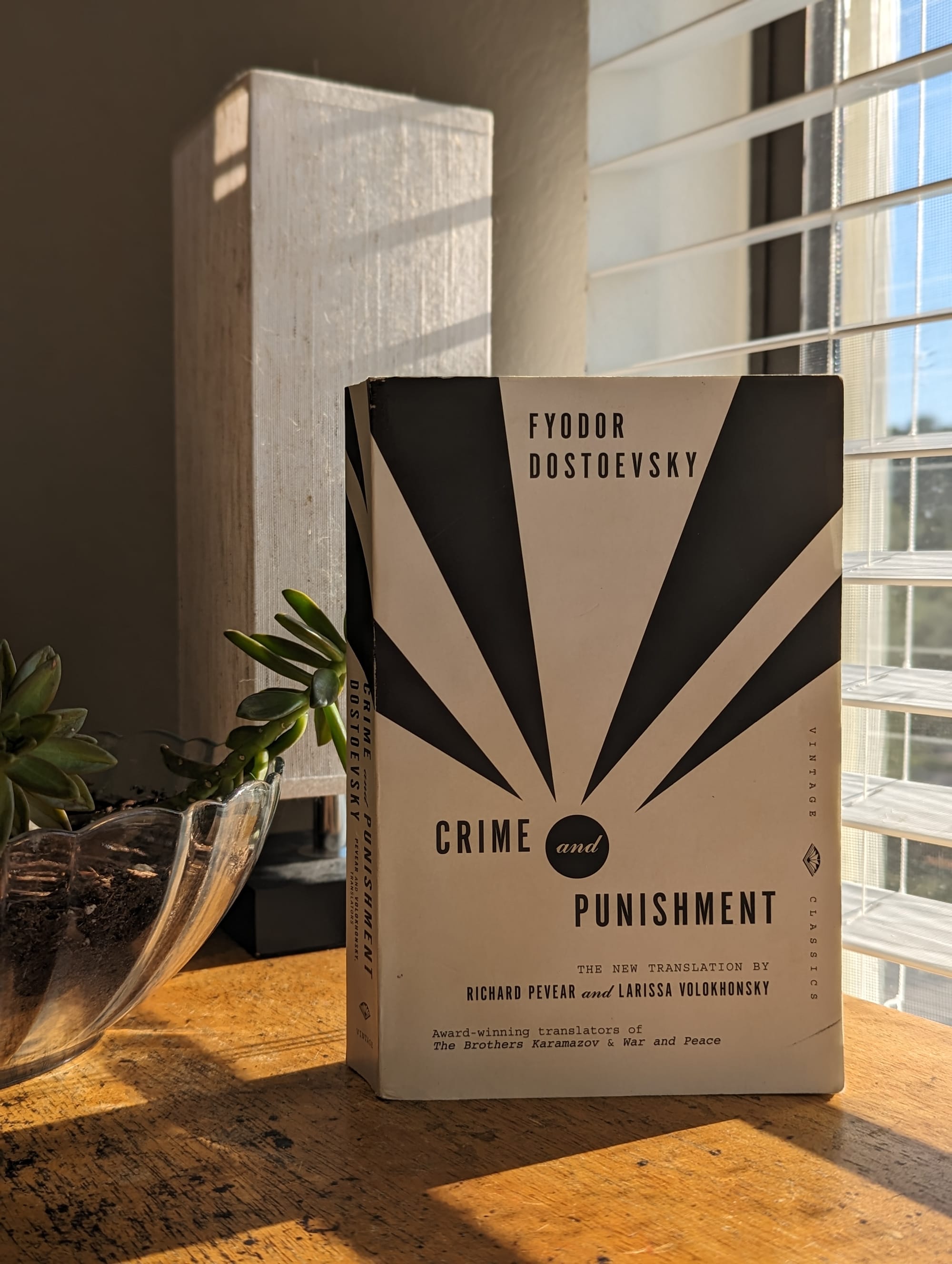Book Review: Crime and Punishment

It is often said that history repeats itself or that “time’s never change”. Humanity has been undoubtedly familiar to itself for the majority of recorded history. Thoughts, wants, dreams and aspirations are far too the same throughout the ages. Although the clothes we wear, food we eat and the scale of technology or information available at our fingertips and more are different. Our capacity to understand and extrapolate from environments has done little to match it. It is through this fact that works from the past are allowed to grasp us with such radical timeless clarity.
Such is true from the work of Fyodor Dostoevsky, Crime and Punishment. An exploration into the mind of those deranged and sinful, the scenes strike a chilling chord of modern relevance. Written in 1866 , under communist Russia, Dostoevsky is able to bring worlds together through a path of our internal recognitions, enveloping the reader with details of the world around and the inner narrative thoughts. It is impossible not to fully become the individuals you are reading about. A distinctly descriptive and intimidating amount of situational clarity presents itself through the text.
This is a story of murder, told from the murderer’s perspective. Not just through his actions but his psyche too. A front seat view on the evolution of character, fueled by desperate needs. Subtle changes derived from greed, self loathing, failure, love and more. Such an intimate perspective shy’s away from little.
The setting of the story is St. Petersburg, Russia, mainly following the mind of our murderer, Raskolnikov. A young and destitute, failing scholar, cramped into a shared townhome closet for quarters. Struggle is an apparent theme from the beginning. Yet Raskolnikov has become quite complacent with his forlorn situation, more so focused on bitter outlooks than out looking. Soon enough a letter from the family arrives, explaining news of his sister's strife and recent marriage proposal from a prominent figure. His mother expressed enormous relief and gratitude, as the new fiance was moving the three of them to St. Petersburg, hoping to get closer to Raskolnikov again.
Yet our narrator takes such news with a livid contemplation, scorned by what he saw as a man leveraging his money against his poor family to have his sister. Almost believing they’re better off with just him instead. Additionally, his family was unaware of his living arrangements, believing him to be significantly more well off, challenging the view he has upon himself for the first time. As desperate times call for desperate measures, Raskolnikov seeks a solution from his poverty and plans a robbery.
Ultimately reaching a climactic point of no return, the narrator must delve deep into darkness in hopes of reprieve. Yet, as with all short sighted goals, what quickly happens next is beyond the current imagination. Initiating a tumultuous series of events, the murder is just the beginning. As authorities raise the alarms of the town and its inhabitants to search for this character, Raskolnikov searches for himself. Confused as to his motives, next steps and decisions made. His candle burns at both ends as his search for a way out continues.
